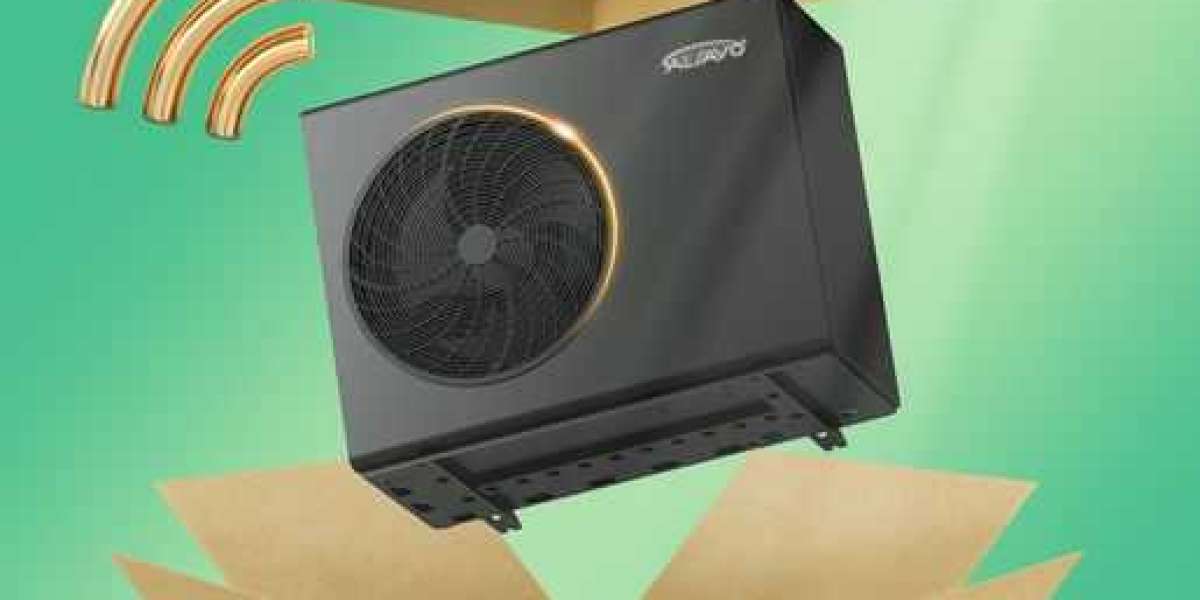HVAC systems are designed to provide thermal comfort, maintain acceptable indoor air quality, and ensure proper ventilation in buildings. They are essential for creating a comfortable living or working environment and are widely used in residential, commercial, and industrial settings.
Home buildings contain many well-known systems and components, such as roofing, plumbing, and electricity. Perhaps the most underrated system is HVAC: a massive heating and cooling system driven by a tiny thermostat.
HVAC, an acronym for Heating, Ventilation, and Air Conditioning, refers to systems in a home or building that produce safe, clean, comfortable air in a space. This is a term often used by many heat pump companies.
- Heating: The "H" in HVAC stands for heating, and as one might guess, this system heats the air in your home. Generally, this might involve heating the space with forced hot air from a furnace, radiant heat from a boiler in your home, or an air source heat pump to heat the space through heat exchange. In commercial buildings, heat may come from boilers, heat exchangers and coils within the air handler.
- Ventilation: The "V" in HVAC stands for ventilation, the replacement of stale air and carbon monoxide with fresh air to improve indoor air quality. Manual ventilation will involve opening doors and windows. Mechanical ventilation (as HVAC involves) usually involves heating or air conditioning units that can draw fresh air into the system. The system purifies the air through filters, regulates its temperature and humidity, and exchanges it for stale air.
- Air Conditioning: As important as the other two components of HVAC, air conditioning is about comfort and humidity control. The air conditioning component of an HVAC takes warm, moist air from a space and cools it. At the same time remove moisture from the air to control humidity.
How does an HVAC system work?
All three HVAC components work together as a system, with different components performing certain functions.
In the case of a home HVAC system, the traditional way is the central heating of the furnace. The furnace has a supply side that pushes air through the ducts throughout the home, and a return side that pulls indoor air back into the system. When the system draws room air through the return flow, the air then passes through the furnace, past the coils being heated, and then back to the home through the blower. Now we have developed the ALSAVO air source HVAC system, which is more convenient. The air heats the water, and then heats the whole house through the pipes laid in the room.
Heat pumps are emerging as a promising alternative for sustainable heating and cooling solutions. As the world looks for more sustainable and efficient ways to heat and cool buildings, heat pumps are becoming increasingly popular.
First, they are highly efficient. Unlike traditional heating and cooling systems that rely on burning fuels to produce heat, heat pumps simply transfer heat from one location to another, using electricity to power the compressor. This means they use significantly less energy than traditional systems, making them more cost-effective and environmentally friendly.
Second, heat pumps can be powered by renewable energy sources such as solar or wind power. By using renewable energy to power heat pumps, buildings can become completely carbon neutral, reducing their carbon footprint and contributing to the fight against climate change.
Finally, heat pumps can be used in a variety of applications, including heating and cooling individual rooms, entire buildings and even swimming pools. They're also easy to install and require little maintenance, making them a viable option for homeowners and businesses.
Because of their high efficiency, use of renewable energy and versatility, heat pumps are a great option for anyone looking to reduce their environmental footprint and save on energy bills.
Expert plumber and heating engineer Warming up demand for heat pumps as sustainable heating solutions. Heat pumps are rapidly gaining popularity as a sustainable heating solution, and expert plumbers play a crucial role in meeting the growing demand for these innovative systems.
Why do plumbers play a key role in the installation and maintenance of heat pumps?
Expert plumber and heating engineer Warming up demand for heat pumps as sustainable heating solutions. Heat pumps are rapidly gaining popularity as a sustainable heating solution, and expert plumbers play a crucial role in meeting the growing demand for these innovative systems. The installation and maintenance of heat pumps primarily fall under the expertise of HVAC technicians or electricians with specific knowledge of heat pump systems. Plumbers are primarily responsible for the installation, repair, and maintenance of plumbing systems, which involve water supply, drainage, and related fixtures.
Second, plumbers can provide ongoing maintenance and repair services to keep the heat pump running smoothly and efficiently. Regular maintenance is important to prevent breakdowns and ensure the system is operating at peak efficiency. When problems arise, plumbers can diagnose and repair them quickly, minimizing downtime and reducing the risk of larger problems in the future.
Overall, the involvement of plumbers in heat pump installation and maintenance ensures that the water-related aspects of the system are properly handled, connections are secure, and potential plumbing-related issues are addressed effectively. Their expertise in water systems and collaboration with other professionals involved in the installation process make them an important part of the team. It's important to note that the extent of plumber involvement in heat pump installations and maintenance can vary depending on the specific system and requirements.
HVAC systems come in many shapes and sizes. Other systems may include energy efficient heat pumps, ductless split units, humidifiers and dehumidifiers, etc. If your next home improvement project involves HVAC work, please contact Alsavo-Trusted air source heat pump supplier r to learn more about air source heat pump. As a business that has served the heat pump industry for more than 20 years, our air source heating and cooling technology leads the industry. The birth of the ALSAVO HVAC system came naturally, and we will continue to take high.










